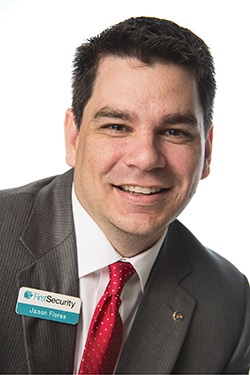Decide Now to Save and Invest for the Long Haul (COMMENTARY)
by October 13, 2014 12:00 am 70 views

Recently, I was in Dallas to watch my favorite college football team.
I was having a great time until overtime rained on my parade.
During the long drive home, I couldn’t help but think about what should have been, what could have been and, ultimately, what happened.
I work with individual investors on a daily basis. Although the group of people I work with is diverse, there is a common thread in most of my conversations. There is almost always the opportunity that was missed — the time when they should have invested, but didn’t.
That time when we “could have” and “should have” might be right now for multiple generations.
The media have recently focused on the widening of the wealth gap, the shrinking of the middle class and how we as a country are falling behind on savings and investment. As I read through this year’s list of the 10 richest people in America, one thing stood out about all of them (besides the fact that they are all rich, and their net worth continues to increase): They all owned a lot of stock in companies.
Much of the basis for the increase in net worth for the rich was the epic rise of the stock market, combined with a very high bond market, as well as the return of real estate values. This rise was a major component of the difference in the wealth gap. The other part was their ability to hold onto or add assets when the markets were in steep decline, which shows uncanny nerves and the ability to think long term.
I can’t own a majority of a company’s stock like many of the top 10 do, but I can own some stock. Stock ownership in the United States is dipping to lows not seen in decades. No doubt the roller coaster market has scared a lot of people, but at the end of the day it’s historically one of the best vehicles for gaining wealth over time.
Access to the markets is better than ever before — and less expensive. We have markets that attract capital from across the globe, but a declining amount from here at home.
There is an interesting shift in the investment world from Modern Portfolio Theory, which assumes we all make decisions rationally, to Behavioral Finance Theory, which insists that we all make decisions emotionally.
I think we are somewhere in between. People are rational until they get emotional. It’s hard not to get emotional about your life savings, but here’s the problem: Too many of us are getting emotional on a short-term basis about something we may not need for five to 30 years, depending on our circumstances.
We have collectively gone from thinking about investing as long-term savings, and started to think of it as short-term gambling. I would guess that none of those 10 on the list feels like their money is in a casino.
Watching those football players, I thought about risk and reward. On any given play there could be an injury that ends a career. Yet they go out to play, not thinking of risk, but thinking of reward. If I could train individuals to think of the long-term reward, rather than the short-term risk, America would have a solid team in the middle class. Our savings and investment would be up, the middle class would be more robust and the current wealth gap would not be as wide.
Some of you may already be in overtime looking for that final score, but many of you are somewhere between the first and fourth quarter. You still have time to make plans and adjustments to get into the game.
Decide now to save and invest for the long haul; trust me, it sure is a long ride when all you think about is what “could have” and “should have” been.
Jason Flores is a wealth adviser at First Security Bank in Springdale. He provides investment and estate planning advice to clients in Benton and Washington counties. Investments offered are not a deposit, are not FDIC insured or insured by any federal government agency, are not guaranteed by First Security Bank, and may go down in value. He can be contacted at [email protected] or 479-750-5671.
